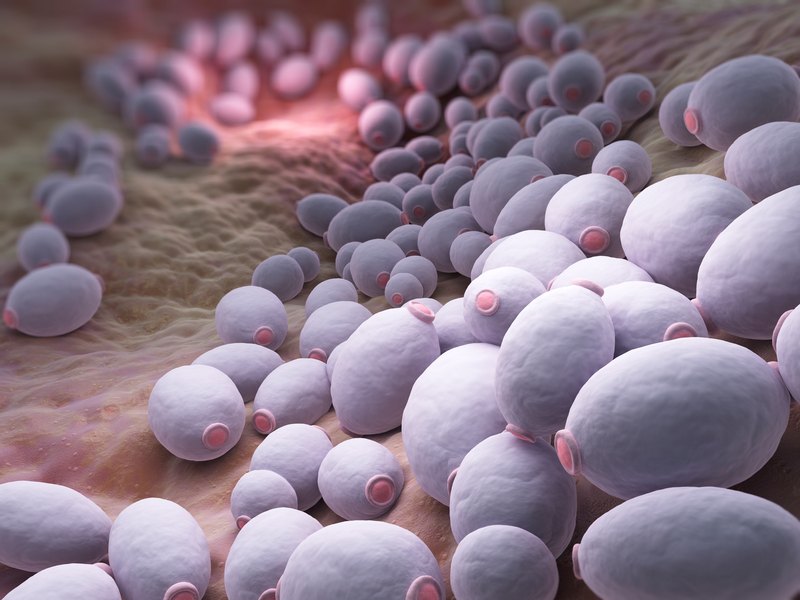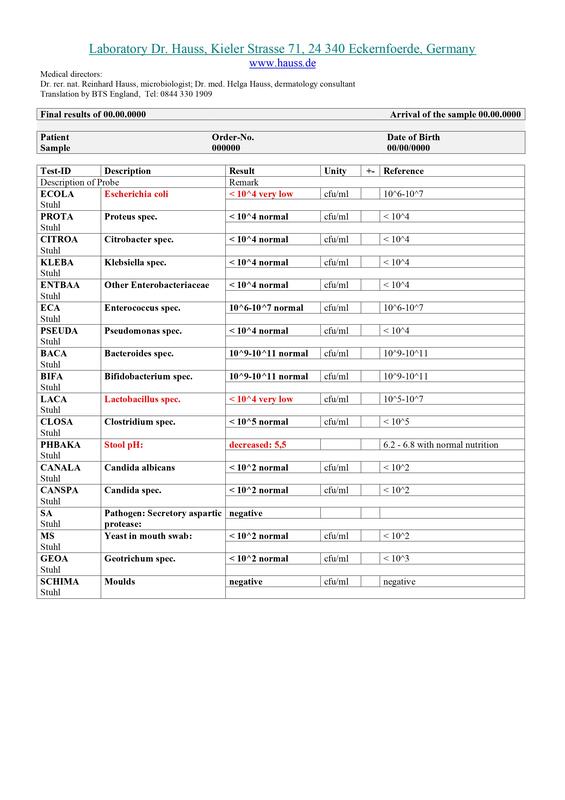Candida overgrowth and dysbiosis stool and mouth swab test
|
£125 (excl. VAT)
£150 (incl. VAT) For info about the test and to view an example report please see details below. For more test ordering info please view the ordering guidelines page. To place an order please scroll down to the bottom of the page. |
- Laboratory: Dr. Hauss Laboratory via Biological Testing Services.
- Test kit delivery: The test kit is dispatched via Mindovermetal. 1st class Royal Mail delivery is provided free of charge for UK customers. For customers outside of the UK (Europe only), the delivery fee is £10 (sent with tracking). The test is not available to order from outside of Europe.
- Sample required: Stool sample and saliva sample.
- Sample analysis: Candida status in stool and saliva sample. Friendly bacteria status in stool sample. Stool pH levels. Mould levels in stool.
- Returning the sample: The sample is sent to Biological Testing Services (UK). For UK customers the return fee is a small parcel fee. For outside the UK customers the return fee will depend on which courier service you use and which country you are sending from.
- Result turnaround time: 10 working days from the day the sample reaches Biological Testing Services.
- Practitioner support and treatment advice programme: Support via email, WhatsApp or phone is included if required and a treatment advice programme for candida overgrowth and dysbiosis is included if required.
- Example report:
| Candida overgrowth and dysbiosis stool and saliva test result example |



